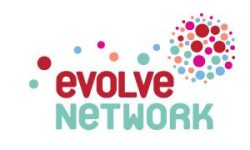So. You want to deliver a message into a regional community but you’re not sure where to start. I’ll be straight with you, unless you have a gazillion dollars to spend on reaching your regional audience your best methodology will always be word of mouth.
But – how do you get that word of mouth stimulated in the regions when you’re not there?
It’s not easy – that’s why you’ll need to enlist others to assist you with the leg work.
NOTE: This post is about finding connections to assist you to share your message with an enormous caveat – just because you’ve found a connection doesn’t mean they will have any intention of assisting you no matter how great your offering is. Your approach will be covered in upcoming posts.
So – where to begin… Start with the connection hubs.
- Local government: Depending on the nature of your message you might want to link with the Mayor, General Manager, Councillors, Economic Development Manager or Community Services Manager (noting this role is thin on the ground these days).
- Aboriginal corporations: Try the local Aboriginal Land Council and contact ORIC who may be able to assist you to link with other Aboriginal Corporations in the area as well.
- Regional Development Australia (RDA): All of Australia is covered by an RDA and having been the CEO of one for 7 years I can assure you they are broadly connected throughout the regions. Find an RDA in the region you’re working in here.
- State government agencies: You will find State government agency teams throughout the regions. Look for larger towns and regional cities that host government ‘hubs’ and find the relevant agency to link with. It’s likely these agencies will have field staff in the smaller communities even if it’s only via outreach.
- Member of Parliament: Your State or Commonwealth member of parliament will in theory be a good go to person to link you into those who know the community. Helpful hint – While the MP will be a helpful connection chances are they will be a bit busy so also get to know the chief of staff or comms. officer.
- Chamber of Commerce: Most regional communities have a chamber of commerce (sometimes a progress association too) and within local Chambers you’ll find people who are highly motivated to assist their community. If you can’t find the local Chamber try connecting with a state-based entity such as Business NSW who can link you with local chambers and often have great networks beyond.
- Sporting groups: Start with football and netball which generally has representation across most regional Australian communities and work your way through other codes from there.
- Not for profits: Each community will host a range of not for profit services who are often among the most networked groups in any area. Why? Because not for profits need broad networks for survival. You can search for Charities via ACNC however keep in mind there will be more not for profits who aren’t registered as a charity in your area of interest.
- Service groups: Service groups such as Rotary, Lions, CWA, Probus are also excellent regional connectors with many members having connections that run deep into the communities they serve.
- Network groups and interagencies: If you are promoting a specific kind of service look for local network groups (e.g. child and family, housing, domestic violence, migration etc). You’ll find these either via your Council contact or by connecting with a locally based not for profit working in this area.
- Neighbourhood Centre: The resurgence of neighbourhood centres is great news for both regional communities and those wanting to connect with them.
- Visitor information centre: usually operated by volunteers from the community these centres are useful contact points for more than just tourist information.
Want to know more about HOW to connect with people in the abovementioned connection hubs? Stay tuned…
Photo by kaleb tapp on Unsplash



